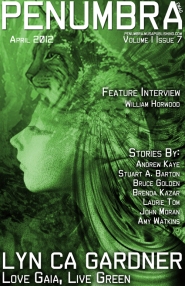Blog Archives
Anthologies
Today’s market listing is focused specifically on anthologies. Anthologies are a great way to join a bunch of other writers in creating something and to get your name out there. They almost always have specific themes, so unless you happen to have something suitable on hand, you’ll probably have to write a story specifically for the anthology you want to submit to.
The Fantasy Faction Anthology Created by a well known speculative fiction blog and forum called Fantasy Faction, this anthology will contain several non-fiction articles as well as stories written by well known authors. For those of us who aren’t so well known, they are holding a contest which includes six publication places and three cash prizes.
Shanghai Steam This anthology is an attempt to delve more deeply into steampunk from an Asian point of view. It looks like a really cool concept anthology and they pay $0.03/word up to 3, 000 words.
Bibliotheca Fantastica Dagan Books is looking for stories about books–rare, weird, maybe even magical books–of up to 10, 000 words. I think this is a great idea for an anthology and I’d love to get it in my stocking, even if I’m not really sure I have anything to submit to them. They pay two cents per word.
Dark Faith 2 Run by Apex books, the same people who run Abyss&Apex the magazine, this anthology is looking for the story that only you can write, something that’s both deeply personal and universal. It’s a good idea to read the first one before submitting to this one.
I hope you find at least one of these anthologies to be worth submitting to. Don’t forget to go through the guidelines thoroughly and to make sure the deadline doesn’t slip past you. If you miss a reading period for your favourite speculative fiction magazine, there’s always another one, but it doesn’t work that way with anthologies. While some of them are annual, it’s best to assume that it’s a one off and that you only have one chance to get into that market.
For anthologies, I suggest reading the guidelines three times. The first time is when you find the anthology. The second time should be after you finish the story you’ve written for the anthology, and the third time should be right before you submit, after edits. No matter how awesome your story is, if you don’t read the guidelines, your story might be formatted incorrectly and it might just end up in a trash can, virtual or real. You want to always give your work the best chance possible.
Market Listing January 13th
I don’t know about you, but this year I’m planning on making several submissions and hoping for at least a couple of publications. Most of the markets I’ll be listing are markets that I’m thinking about submitting to. I will only be listing paying markets, as I will only be submitting to paying markets this year. For now all of the markets I’ll be listing are for speculative fiction. Almost all of the markets I’ll be posting accept electronic submissions, but don’t forget to read the guidelines thoroughly before you submit.
These markets accept longer short stories, for the most part under 10, 000. I’m hoping to find a home for the short story I just wrote, and maybe you will too after reading this list.
Abysss&Apex Magazine of Speculative Fiction Abyss&Apex accepts stories of up to 10, 000 words. They run on a quarterly schedule and have set fiction reading periods. The next one is in February. Payment is five cents per word up to 1, 500, with a flat payment of $75.00 for longer works.
Lightspeed Magazine Originally just a science fiction magazine, Lightspeed recently merged with its sister magazine to start accepting fantasy submissions. They are not accepting fantasy submissions until further notice. Paying five cents per word and accepting stories up to 7500 words long, this is a market to watch.
Strange Horizons This magazine is looking for speculative fiction stories of up to 9, 000 words. They do prefer shorter stories of under 5, 000 words, but it’s perfectly fine to submit a story between 5, 000 words and 9, 000 words. Strange Horizons pays its writers 0.07 cents per word. They are currently not open to fiction submissions, but they will re-open for fiction submissions on February first.
I hope that you’ll submit your fairly long short story to at least one of these markets. If you manage to find a home for one of your stories thanks to a market I sent you, let me know. I’d love to hear your success stories. If you’re too shy to comment, shoot me an email at diannalgunn@gmail.com .
Do you plan to submit more short fiction this year than you did last year?







